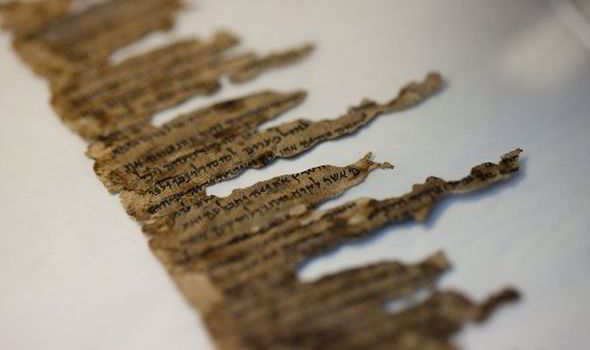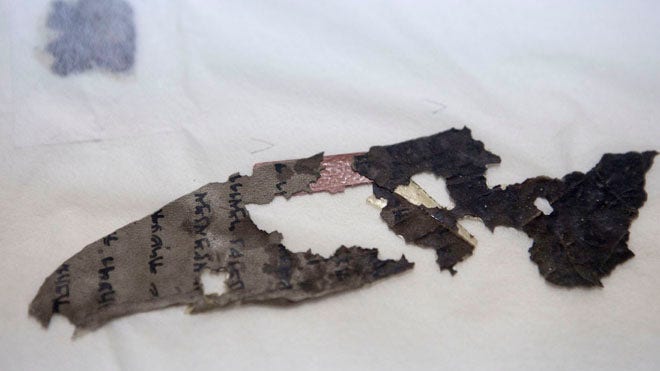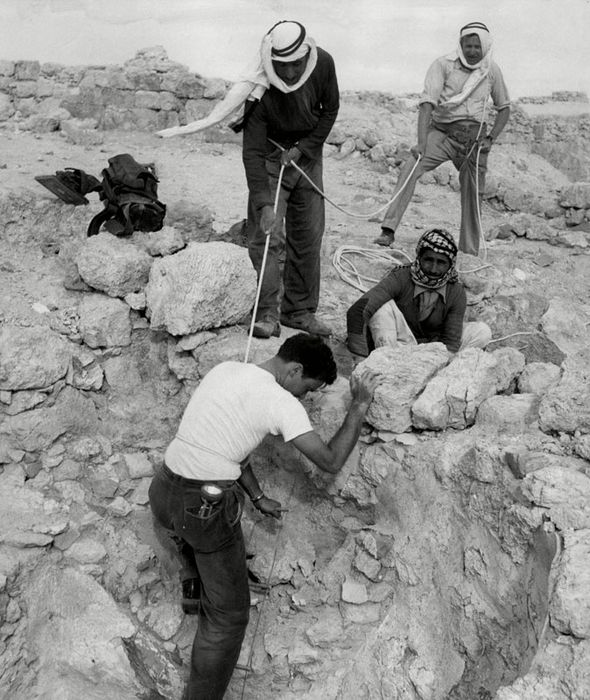About a month ago (May 2013), the family (Kando is the current family member) who originally sold pieces of the Dead Sea Scrolls announced the sale of some remaining fragments of the scrolls. Please keep in mind that I did say some of the fragments.
What are the Dead Sea Scrolls?
Many (scholars, archaeologists, etc) consider the Dead Sea Scrolls one of the most important archaeological discoveries of all time, in fact you will often see the scrolls listed on countdowns of archaeological discoveries on the History Channel or NatGeo.
The scrolls themselves are fragments of parchment (dried animal skin) found in and around multiple caves around Qumran in the West Bank between 1947 and 1956 and during an excavation at Masada in the 1960s.
What is their significance?
The scrolls consist of over a 1000 original documents from the 3rd Century BCE (before common era) to the 1st and 2nd Century CE (common era), and represent the oldest manuscripts of the Hebrew Bible (Torah or Old Testament).
We use the scrolls to study what parts of the Old Testament people passed down through the generations and how they passed these down. I must note that not everything in the Old Testament today represents what people wrote over the centuries. The scripture today is what officials decided is important. This is one of the most important reasons why we study these scrolls, they provide insight into what "didn't make the cut".
Many of the fragments are available through digital libraries for the public to view and study:
Digital Dead Sea Scrolls
West Semitic Research Project
Because of how fragile the documents are (based on age and medium (material)), scholars need special reason and permission to study the actual fragments in Israel (understandable).
Today
Now remaining fragments are up for sale! Pieces go up for 500-600 million dollars US. Kando has sold fragments to universities and collectors throughout the years and Israel has followed these sales. Depending on the importance of the pieces, i.e. if they are part of the Book of Genesis, they can fetch up to 50 million dollars.
The current pieces are either blank or have a few lines, but that doesn't mean that they do not have scholarly importance. Think of the whole collection of the Dead Sea Scrolls as a huge puzzle with words in a different language (Aramaic). Now imagine only having less than 50% of the puzzle pieces available, and then imagine someone taking some of the remaining pieces away. Now put the puzzle together. Can you see the problem? Those few lines can serve to "fill in the blanks" of what we do know, and can add to our knowledge.
Controversy
Israel is furious, and state that the Dead Sea Scrolls are a part of its cultural property (belongs to the state of Israel), because the scrolls were found in and around land that Israel considers within it's borders, as well as the fact that the scrolls refer to the Hebrew Bible. Some can argue that this is World Cultural Property, but this does not take into consideration who should act as custodian.
Kando stated that he offered the pieces to Israeli antiquity authorities for sale, but they could not afford them.
So what should be done with the scrolls. Israel has never shut scholars out from studying the scrolls, so if they obtained the pieces, we can assume that they would not be "lost" to the public. This is an important reason why some argue against countries obtaining cultural property. There is a fear that a country would destroy and/or not make the antiquities available for study. This is also true of a private collector. Private collectors could place stipulations on antiquity because it is their property once they buy it, and the antiquity can be placed in a wealthy collector's home closed off to the public. This is my greatest concern with the sale of the scrolls, along with the fact that selling antiquities gives backing to looting (I will discuss this further in another post).
As always, I would like to know what you think about this specific topic. Should the Dead Sea Scrolls stay with the Israeli government? Go on sale?




No comments:
Post a Comment